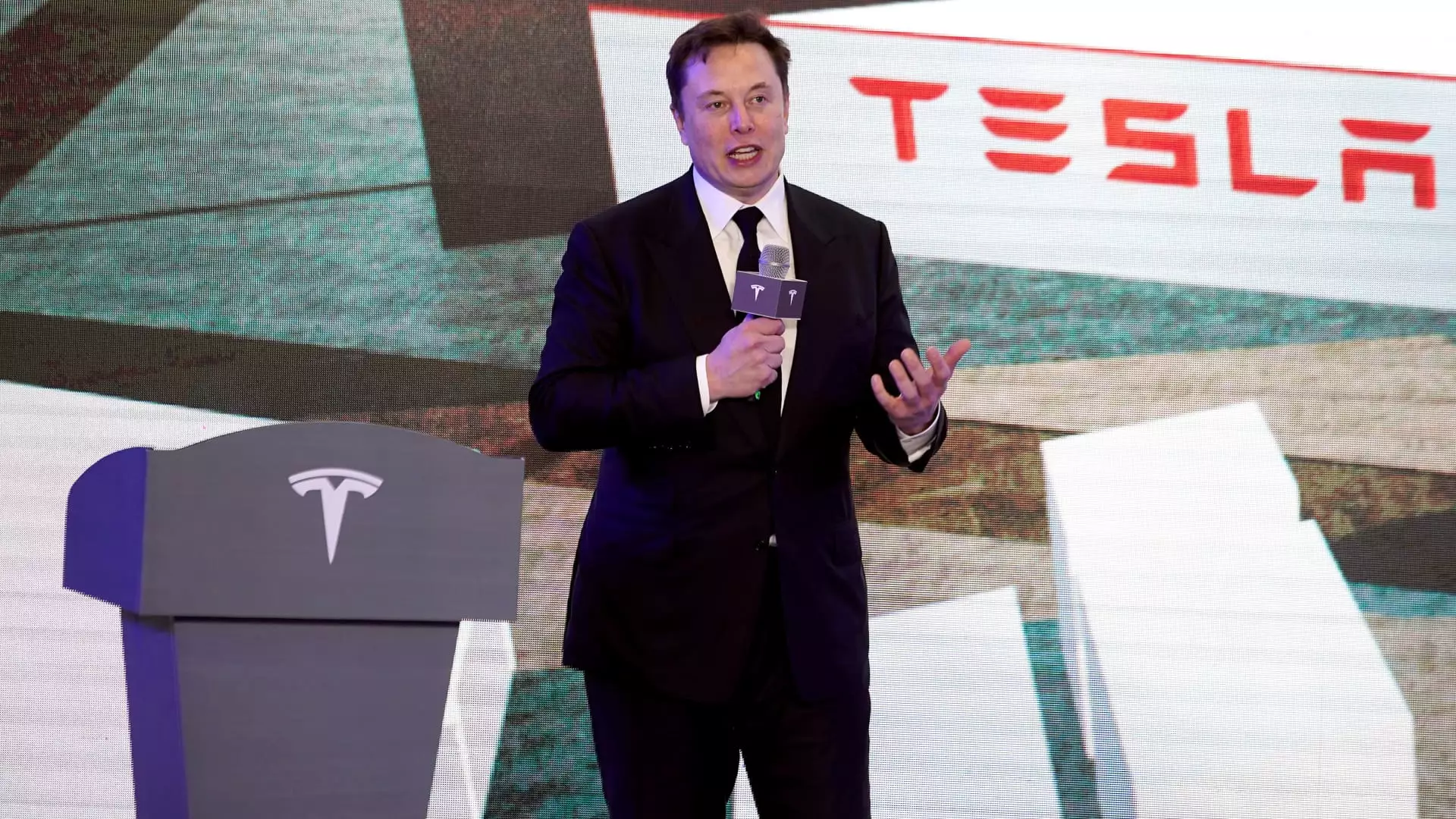In an audacious move reminiscent of the dynamics that govern authoritarian regimes, Tesla has recently amended its corporate bylaws to place an almost insurmountable barrier between its shareholders and the board of directors. Effective May 15, this new regulation stipulates that any shareholder or group wishing to instigate a derivative lawsuit against the company must own a minimum of 3% of Tesla’s issued shares. As of now, with Tesla’s market cap soaring past $1 trillion, this equates to roughly $30 billion—a staggering sum that effectively silences the voices of everyday investors.
Tesla’s decision is not merely a corporate maneuver; it’s a stark indication of how influential corporations can manipulate legal frameworks to shield themselves from accountability. By relocating its headquarters to Texas, Tesla has embraced the more favorable state laws that ease the burden of shareholder lawsuits. In doing so, the automaker seems to advocate for a troubling trend—one where the interests of a select few supersede those of the collective. This behavior raises critical questions about the ethical compass of corporate governance in America.
From Delaware to Texas: A Move That Screams ‘Status Quo’
Historically, Delaware has been considered one of the most favorable jurisdictions for corporations. Its courts have been known for their leniency toward management, offering a shield against shareholder scrutiny. However, the case involving Richard Tornetta—a prospective investor who challenged a highly questionable CEO compensation plan—made significant waves, ultimately leading to broader conversations about accountability in corporate America. The pursuit of a lawsuit against Musk’s immense paycheck attracted necessary attention, yet it also exposed an underlying flaw in corporate structures that favor a ruling elite.
The irony is palpable; in leaving Delaware for Texas, Tesla’s leadership is not just trying to escape the clutches of accountability but is initializing a systemic pivot toward a culture where reckless financial maneuvers are tolerated, if not endorsed. Instead of addressing the moral and financial implications of executive compensation, Tesla has opted for a path of least resistance—one that fortifies their control and emboldens excessive risk-taking.
Plausible Deniability: A Roadmap to Corporate Irresponsibility
The implications of this bylaw extend beyond mere legal jargon; they reveal an unsettling disregard for shareholder interests. The requirement for a minimum shareholding stake in order to initiate lawsuits significantly narrows the pool of investors who can keep the company in check. Anyone with a complaint about mismanagement or fiduciary breaches now faces an uphill battle, encouraged by the knowledge that many stakeholders will inherently be reluctant to risk their investment to take the company to court.
Ann Lipton, a seasoned attorney and academic, recognizes the severity of this shift. She points out how the 3% threshold acts as a formidable barrier to legal recourse. This implies that shareholders with legitimate grievances may find themselves all but disenfranchised. In a democracy, having mechanisms for accountability against leaders—especially in publicly traded companies—is crucial. Yet, Tesla is essentially advocating for a playground where only those with deep pockets can challenge the game’s rules, providing a roadmap for corporate irresponsibility that could spawn further distortions of accountability in the industry.
A Dangerous Normalization of Corporate Amplitude
What Tesla has effectively done is normalize an abuse of corporate structure that prioritizes the financial interests of a few over the common investor. This shift is alarming not only for Tesla shareholders but for the entire landscape of corporate governance in America. If such measures become commonplace, we may stand on the precipice of a future where accountability becomes an aberration rather than an expectation.
It’s essential for investors, corporate watchdogs, and the general public to remain vigilant in these trying times. The democratization of information and the ability to voice dissent are pillars of a functioning market system. Yet, with companies like Tesla setting precedents that threaten these standards, the battle for accountability in corporate America faces turmoil. If we allow this trend to pervade further, what will remain of shareholder rights, corporate governance, and the ideals of fairness and accountability that should guide them? The stakes couldn’t be higher, and the reverberations of these decisions will echo throughout the business world for years to come.

